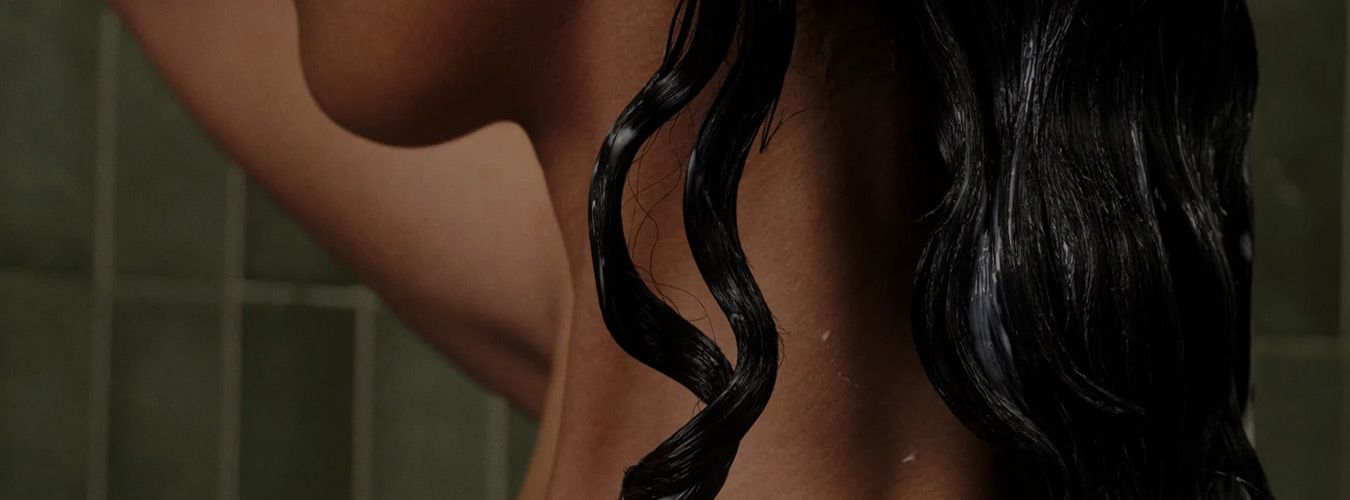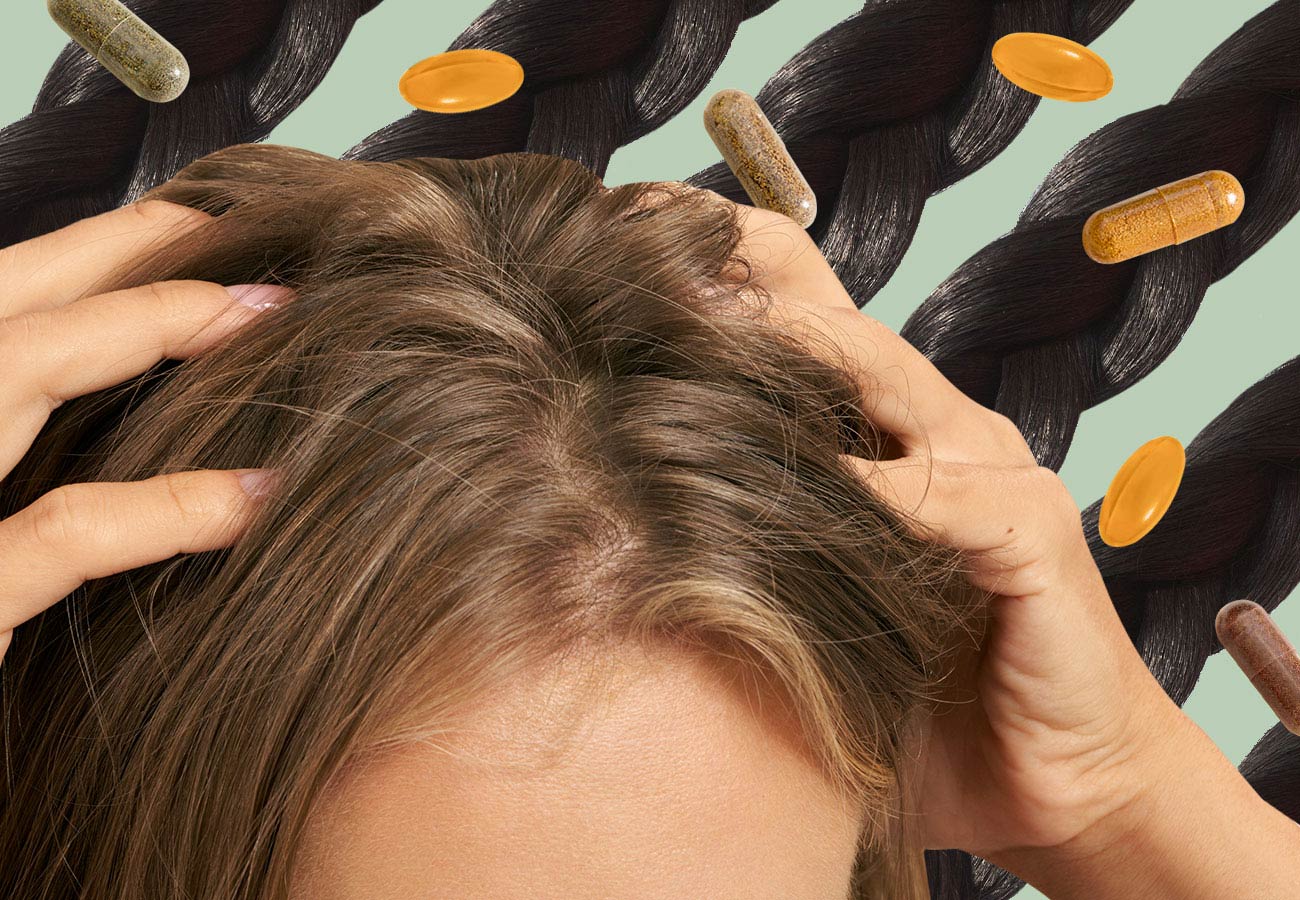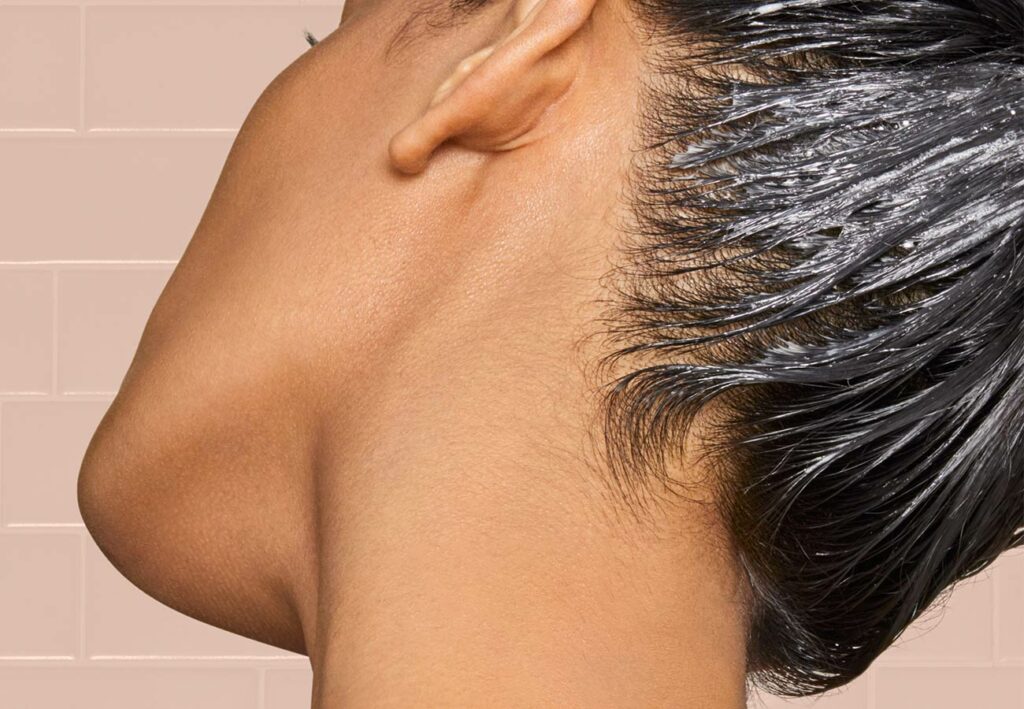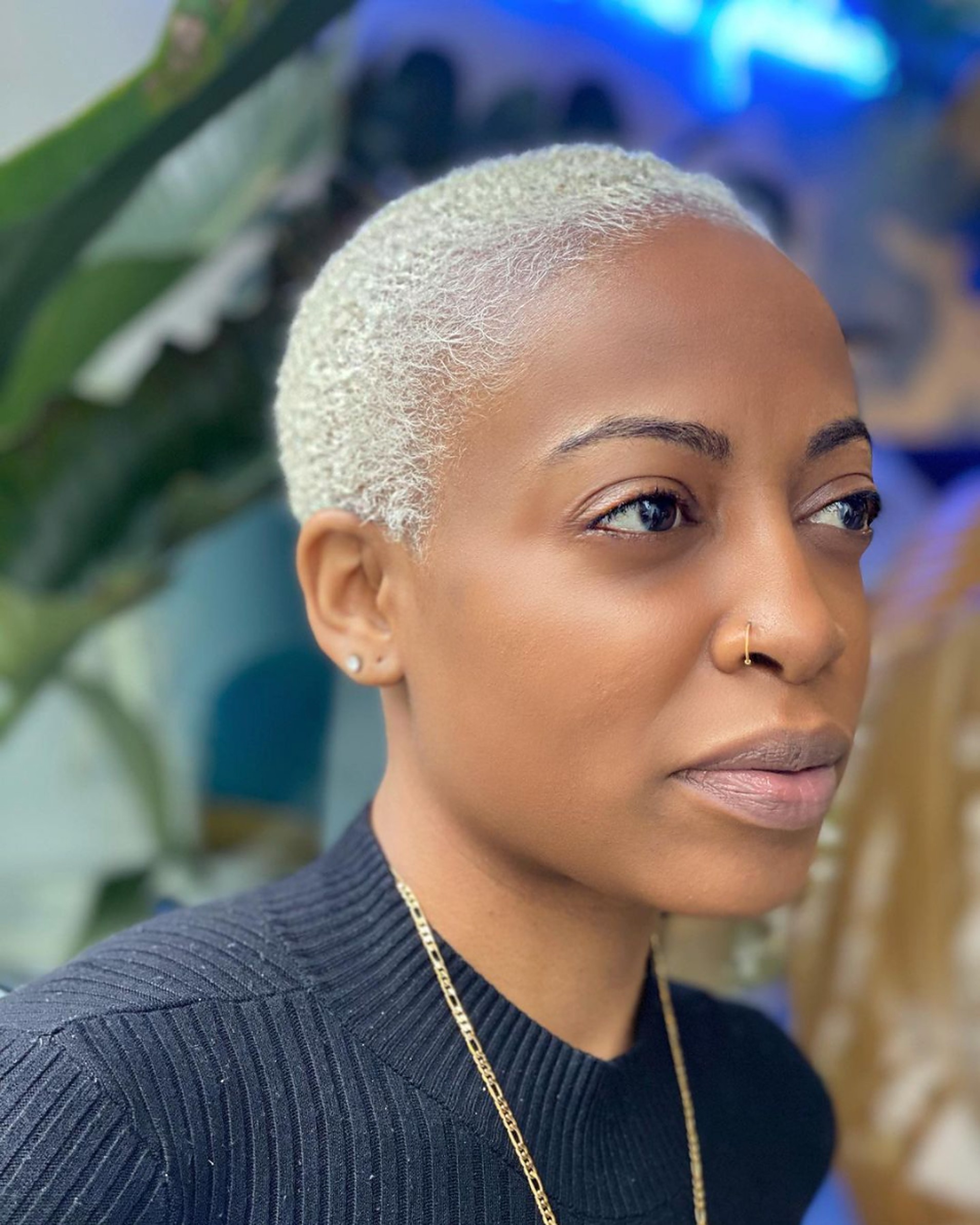Why more women are seeking hair loss help
We tend to think of hair loss as a male-specific issue, perhaps since it’s much more prolific across populations, and has been the center of the discussion. But Ross notes that most of her patients are women, largely because of two reasons: First, it’s becoming more prevalent due to the various environmental and stressful factors which can lead to hair loss. Secondly, because society is getting comfortable finally discussing female hair loss.
“It’s a very stressful and scary thing to go through, because for many women, hair is a huge part of our identity,” she says. “I experienced a hair-loss scare myself due to a mineral deficiency, so it’s very easy for me to empathize with any women out there going through something similar.”
Ross says that the following factors cover the majority of cases she sees with women clients: years of harmful styling practices, hormones, pregnancy, stressful events, and nutrient deficiencies.
For men, it’s not just genetics
One big misconception about hair loss in men is that it’s purely genetic. “For the fellas out there, I’d also like them to know that some of these factors can impact their hair as well,” Ross says. “It’s not always tied to how much hair your father or grandfather had. Plenty of men are losing hair due to lack of vital nutrients or stressful events and may not realize it.”
How stress impacts hair health
Besides anything genetic, stress is likely the top reason people lose their hair in unexpected, noticeable ways. “There’s a reason why we call it a silent killer!” Ross says.
When we experience emotional or internal stress, the body produces more cortisol, which is the stress hormone. But these cortisol levels spike from all kinds of internal stress, Ross points out. “Things like too much sugar intake or not sleeping enough may not make you ‘feel’ stressed, and they raise your stress hormone.” Whenever cortisol levels go up, they more prominently impact the hair follicle’s function and growth. “The higher the stress, the higher the likelihood that your hair will be negatively impacted, especially in women,” she says.
How your lifestyle impacts hair health
It always bears saying, and repeating: “Healthy hair starts with a healthy body,” Ross says. “Ensuring that your body has an optimal amount of the most vital nutrients that boost hair function and keep inflammation away is going to be your first and best line of defense.”
Doing all the other stuff, like keeping your scalp clean and exfoliated, are only so helpful if you don’t first have a healthy diet and lifestyle. We’re talking lots of sleep, water, nutritious/unprocessed foods, as little alcohol as possible, daily exercise, and so forth. “Once you’ve nailed those habits down, then it’s as simple as using the best quality shampoo, conditioner and styling products for your needs and using them routinely,” she says.
When to visit a trichologist
Ross has a bit of bias regarding how frequently you should see a trichologist—periodically, let’s say 1-2x a year—even if nothing seems wrong. “Many times we can detect any issues that may be coming around the bend, and stop them before they’re serious,” she says.
But here are the biggest indicators of when you should make an appointment: “If your scalp is any combination of itchy, dry, flaky or inflamed, that’s something you want to check out right away. Also if you see a spot that seems to be thinning but you’re unsure, it’s best to get it checked out rather than waiting to see if it gets worse.”
How to decide the best approach to your hair regrowth
Hair loss is not “one size fits all”, Ross reiterates. How you approach your own recovery is a personal decision, and should come after lots of research and consideration—and hopefully some helpful visits to the trichologist or dermatologist.
Ross only works with holistic approaches in her clinic, though she understands that some patients want to consider prescription treatments. “My professional opinion would be to get as much data on the ‘why’ of your hair concern as you can, because sometimes it’s an easier fix than taking a prescription,” she says. “Now, say you’ve done your research and a prescription makes sense to you, then that’s a path to explore at that time. Our goal is to always teach your body how to grow hair on its own, without the use of prescriptions or minoxidil.”
As for picking the best supplement, she says to do the same research: “Make sure that the supplement you decide on has the things that your body lacks. That way you’re not stocking up on unnecessary nutrients while completely missing the target needed to improve your situation.”
How long before you see results?
Finding and sticking to a dedicated hair-loss treatment is a victory in itself, Ross says. It can be the hardest part, especially since you need to honor the regimen long after you see results—which can take a while, too. “A general rule that I have [for hair loss or scalp recovery] is that restoration takes twice as long as loss,” she says. “Meaning if you’ve been experiencing hair loss for one year, it can take up to two years to be fully restored. Of course there are exceptions, but I think this rule sets the expectation that you’re not in this for a quick fix, but rather on a journey. Embrace the journey!”
Always made to order. Never made to waste.
Exclusive Trial Offer Get 60% Off + Free Gift







